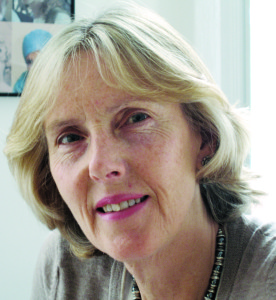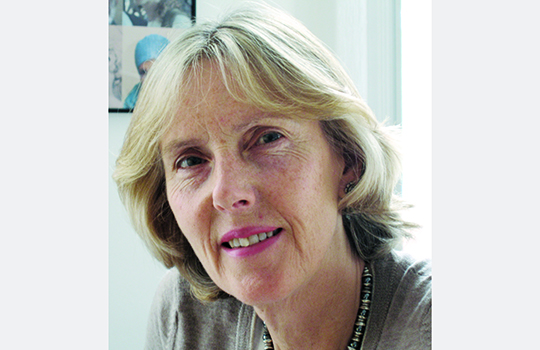 I hate to think of what I’ve cost the NHS since I was diagnosed with cancer in 2004. This year alone I’d need to factor in 12 outpatient appointments, seven MRI scans, and a course of radiotherapy. And “the worst is yet to come,” as one consultant I saw wryly reminded me. But sufficient unto the day. I’m grateful to be alive and kicking, and having plenty of opportunity to observe how health professionals’ behaviour affects patient wellbeing.
I hate to think of what I’ve cost the NHS since I was diagnosed with cancer in 2004. This year alone I’d need to factor in 12 outpatient appointments, seven MRI scans, and a course of radiotherapy. And “the worst is yet to come,” as one consultant I saw wryly reminded me. But sufficient unto the day. I’m grateful to be alive and kicking, and having plenty of opportunity to observe how health professionals’ behaviour affects patient wellbeing.
My interactions with staff have ranged from good, bad, to indifferent, but one stands out: a new appointment with a consultant radiotherapist. Unusually for a tertiary hospital, it was a one to one consultation. As a rule, one sits and waits for the retinue to arrive and conduct a “team meets the patient” event—a mode of communication I find disquieting. One is never quite sure which member of the (often changing) team one is supposed to relate to.
Refreshingly, she did not start the conversation with the conclusions of the last multidisciplinary team who discussed my case. She simply asked, “Well, with all this going on, how are you feeling? How is it affecting your life and that of your family?” For the first and only time since my recurrent inoperable cancer was detected, I was moved to tears. I was being seen as a person first, rather than another case with interesting pathology (although that has its upsides).
She has continued to be there for me and we “talk” by email if needed—a mode of exchange I am careful not to abuse. I know how rarely doctors give patients the opportunity to reach them this way. She has, in effect, agreed to be my professional partner in care. Her wise, kind, and timely counsel, brief and to the point, is beyond rubies to me. It’s helping me steer a course through a choppy sea of multi-centre, multi disciplinary management.
We know that empathy and support from a doctor with whom one has a trusting, ongoing relationship is important to patients. We also know that healthcare organisations don’t or can’t prioritise it.
One member of my family who has a debilitating chronic disease is on appropriate treatment, but lacks a “therapeutic relationship” with a health professional. I have suggested that he goes to an online patient community for support. I also asked the head of department in a hospital he attended for their view on continuity of care (after noting that he had seen five different health professionals in five consecutive outpatient appointments). The reply was “We prioritise the training needs of our staff.”
This is cold comfort for patients. So is the fact that, increasingly, they are likely to encounter health professionals who are suffering from “burnout.” Definitions of the term vary but coalesce around emotional exhaustion, a cynical attitude to work, and reduced performance. The knock-on effect on them, their patients, and the healthcare economy is significant and warrants further exploration. Organisations that don’t provide a supportive workplace for staff can’t expect them to provide compassionate, patient centred care.
Two months ago I underwent tumour ablation. (I paid for it on this occasion, for the NHS does not fund the technique I underwent for my rare cancer.) The experience was harrowing although the outcome good. I felt “processed” rather than cared for. Pain relief was poor and personal care patchy.
At one point I was crying in pain and very scared. I was told to pipe down. I guess I was disturbing fellow patients. But I was beyond thinking about them. My dominant, but unsolicited, concern was “My God, I don’t want to die now, not like this, not here.” I was in no position to judge if the staff who cared for me were suffering from burnout, but I would not be surprised if they were.
While still smarting from this experience, I asked The BMJ’s patient panel for their views on whether patients have a right to be seen by professionals who are not burnt out? They saw this as a counsel of (unrealistic) perfection. Burnout must be acknowledged as a pervasive and “wicked” problem in health systems, and patients should be aware of it and seek to play their part in reducing its frequency.
A movement that seeks to do this is Hearts in Healthcare. In the UK the Point of Care Foundation underlines that the NHS must recognise that caring for those who work in healthcare is key to providing compassionate, good quality care. In their 2014 report they note the link between higher staff satisfaction and lower rates of mortality and hospital acquired infection. The international WELL-Med community are pushing similar messages. The two are currently joining forces in an effort to advance debate on burnout, to generate evidence on how best to tackle it, and to get it firmly on the agenda for quality and safety in healthcare. I’m with them, every step of the way.
Tessa Richards is senior editor/patient partnership, The BMJ.
